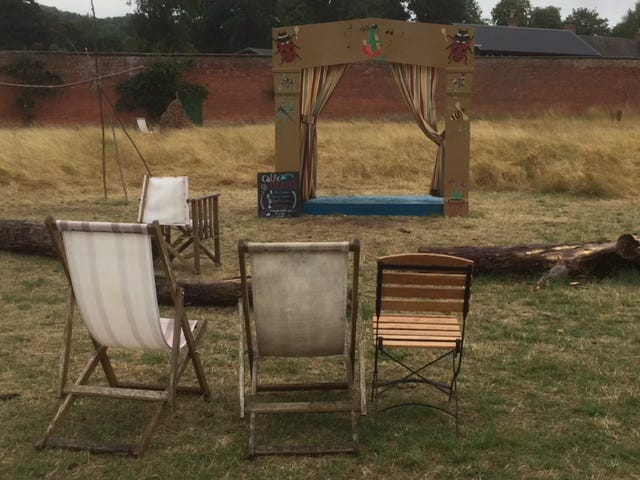There’s a scene near the beginning of Ghost (no, not that scene!) where Patrick Swayze has just been killed and an ethereal chariot comes to take him off to some other, happier realm. He’s supposed to go of course, but he doesn’t know that. In fact, he doesn’t know he’s dead. So the chariot swoops away and leaves him on the street - both the physically dead Swayze and this now trapped ghost of the Swayze he was at that fatal moment.
Metaphorical chariots sweep by us every second of every day, invisibly taking our old selves away and leaving us with the one that remains.
“I believe we have two lives: the life we learn with, and the life we live with after that.” - Glenn Close, in The Natural
And even though there’s nothing we can do about those chariots (“the chariots of time”, perhaps), often we remain attached to those old instances of who we are. Or who we were. Just like Swayze.
It’s almost as if, from time-to-time, we deliberately let the odd chariot slip by and choose not to get on board. In doing so perhaps we’re trying to generate little fissures in the fabric of our lives to which we long to return, as if we might re-experience or recreate or change them.
For writers, such moments are a little like finding shiny nuggets when panning through time for gold. They are rich, filled with potential and opportunity; nuggets that can be shaped and polished into something beautiful and wondrous. And not merely those precious instances from our own history, but those we might create for our fictional characters too. Stories are often crafted from the interplay of such fragments, narratives connected to each other, woven into a new tapestry; and from that tapestry will come new moments - including those rare times when a reader, inspired by our words, might allow one of their own chariots to pass by in order to be able to say “I remember when I read that; it made me cry on the subway.”
Yet for some people those fissures can be damaging too. They can gnaw away at us, create painful scars; more significant than that, they can stop us moving on, embracing the ‘now’ of our lives - the ‘now’ which continually becomes a ‘then’, whisked away by the charioteers of time.
I wonder if there is a unique challenge for a writer therefore: to arrive at a balance of retaining sufficient fragments to inspire our work, yet not become so self-absorbing as to stop us living.
Sometimes I read things - usually whole collections of poetry - which are dominated by what seems to me to be an unhealthy revisiting of very few past moments. Even, on occasion, just the one: a death, a tragedy. In the face of such obsession, “Where is the now of your life?!” I want to ask. “Isn’t there something else, something new?” And not being someone who is drawn to memoir, I wonder how those who only write about their past selves reconcile that endeavour with the person they are today or will be tomorrow. Is there a price paid, I wonder?
Just musings really - and all prompted by the splendid photo taken at Calke Abbey: the vacant ‘stage’, the empty seats in the audience. We - or people like us - will have filled those places at some point in the past, and I can’t help but wonder where they all are and what their stories might be.
But then, that’s probably just the writer in me talking…




